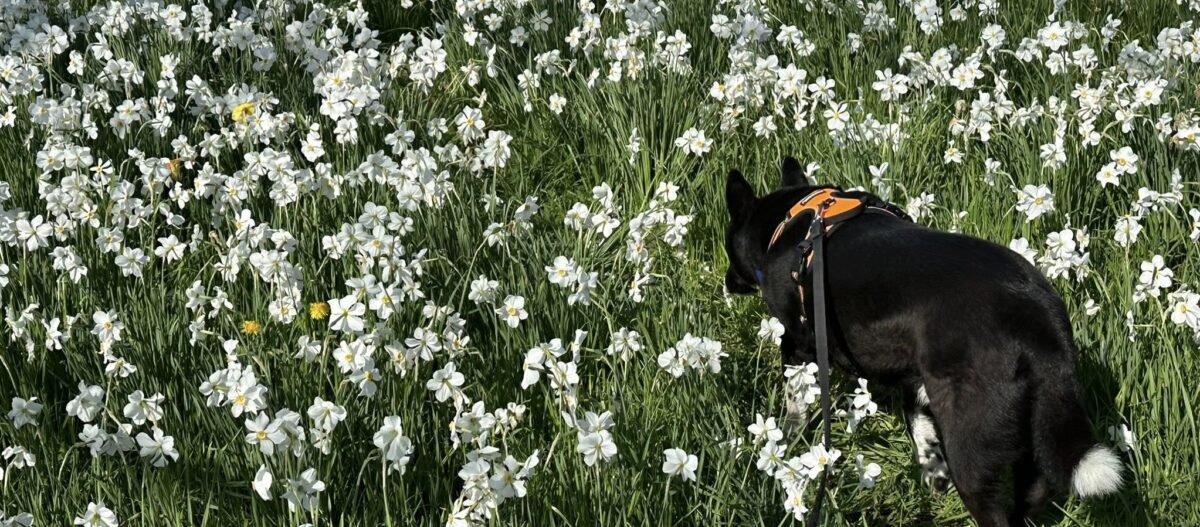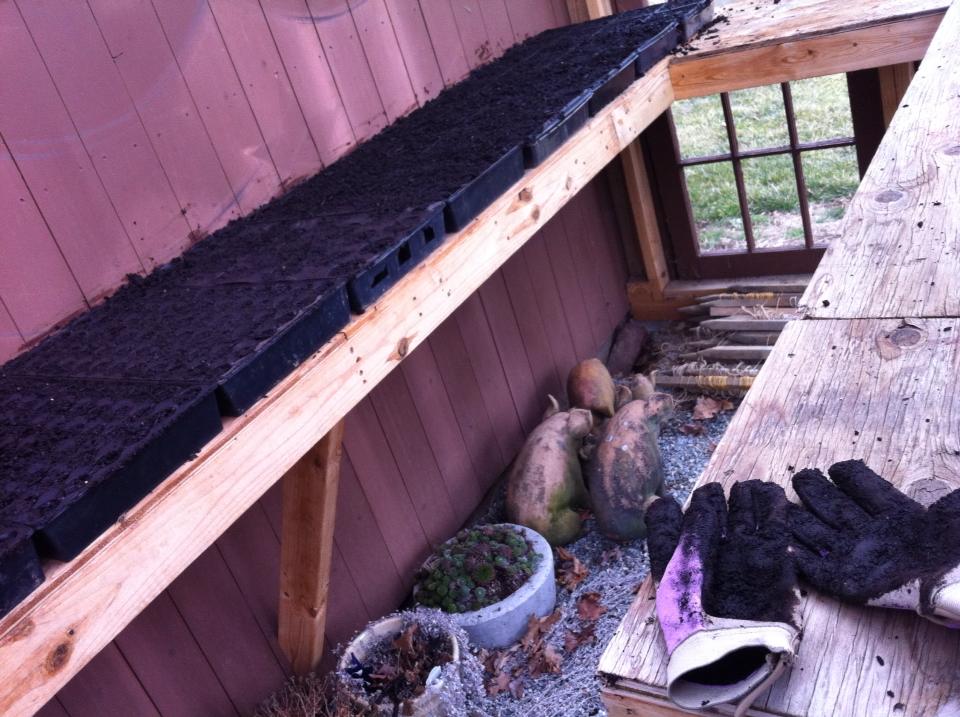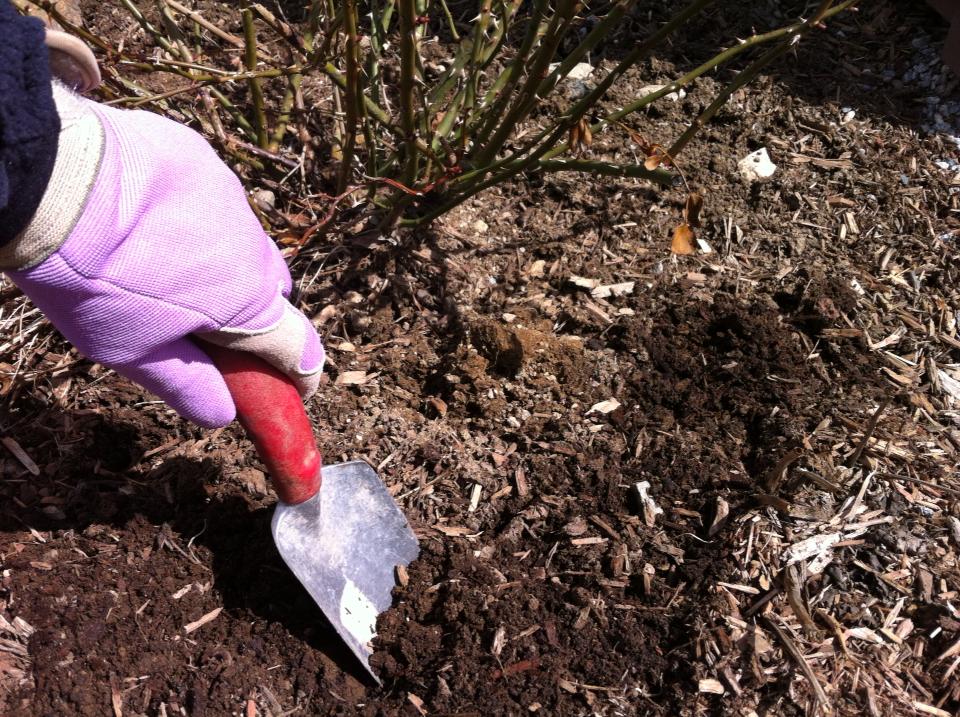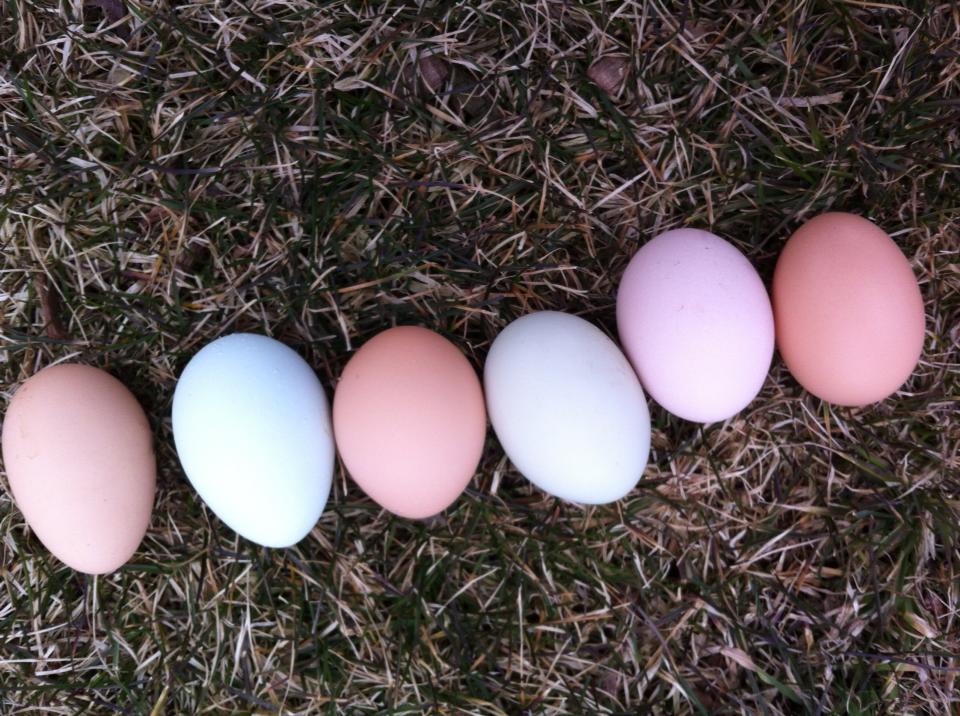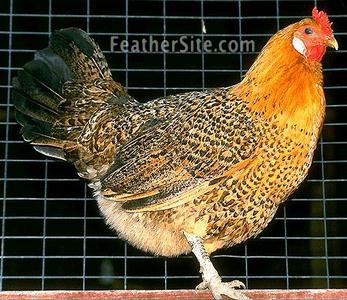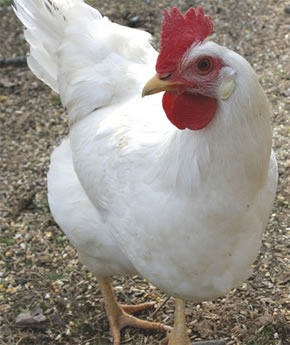Tag: Chickens
This and That
Homestead happenings
SO, Mr.Type A has been bothered by the fences we put up when we first moved to the farm. The horse fencing was electric tape, which worked just fine, but the deer repeatedly knocked it down when attempting to jump over or through it. The Dog run fence was, well it was just plain ugly. Since it was the main entrance everyone used to get in and out of the house, it drove the husband nutz. Things don’t stay around for long if they’re aggravating him….. (it’s a wonder I’m still here.)
It’s a farm life
The Girls have arrived!
I won’t buy pullets through the mail again,
A whisp of Blue on Saturday morning…
It’s a grey mist kinda day so far… and on my way up the driveway with a gator full of horse and chicken manure I came across an injured bluebird. Sad to see it… knew there was nothing I could do for the fella… so I picked him up and put him in a nearby bluebird house.
Respect for Farmers…
“Abraham Lincoln created the U.S. Department of Agriculture in 1862. At that time about 90 out of every 100 Americans were farmers. Today, that number has shrunk to just 2 out of every 100 Americans. Still the motto of the U.S. Department of Agriculture is the same today as it was nearly 150 years ago. Across the bottom of the official USDA seal, are the words “Agriculture is the foundation of manufacture and commerce.”
When we finally moved in to the completed Homestead here, Mike was eager to get a large garden going and have a stand out front to sell some of the produce. His grandfather had a fruit and vegetable store in West Haven years ago and something in the growing of produce has always held his interest. We’ve had a small horse farm ever since we were married 24 years ago, but didn’t devote any large piece of the land to vegetable gardening until recently. We also have several hay fields at This Old House that need tending.
What we’ve learned in the past few years is …. Farming is HARD WORK!.. and it’s truly a science. It’s not hard to lose an entire crop to weather or over/under-fertilization or pest infestation. I’ve gained tremendous respect for those who tend the soil and produce food for the masses. I’m not talking about corporate “factory” farms, but those who are down in the trenches, the fields, the barns, the soil… from sun up to sun down. While we’re just a hobby farm with that small stand out front, there is enough toil here for us to appreciate those who are feeding their families off the land and making a living at it too. I urge you to support their efforts by buying local produce whenever possible. Your body will thank you too! Not only is their produce healtheir for you… without them present in this country’s system we’re headed down a road we don’t want to go.
We don’t have hay equipment, so a farmer in the area brings his equipment for atleast two cuttings each summer to cut and bale the hay. He takes most of it to feed his own animals, and leaves some of the hay for us. The hay must be cut in dry weather conditions… there needs to be enough time to mow it, thresh it into rows, and then bale it with a haybaler. Then the bales need to be picked up out of the field and stored in a dry loft where there is plenty of air circulation, so as to prevent mold, which makes them useless for feed. Moldy hay can make a horse very sick. If there is a rainy season, it’s hard to get this accomplished. Yesterday the hay was cut in most of the fields here, some of it baled, and today, before the predicted rain, they’ll try to finish what they started. Last year we had to throw our stored hay out because it had gotten wet and was stored too tightly. When I opened a bail to feed the horses weeks later, the mold cloud forwarned me that the hay had been ruined. Lesson learned.
10 Reasons to Love Eggs
1. Eggs are great for the eyes. According to one study, an egg a day may prevent macular degeneraton due to the carotenoid content, specifically lutein and zeaxanthin. Both nutrients are more readily available to our bodies from eggs than from other sources.
2. In another study, researchers found that people who eat eggs every day lower their risk of developing cataracts, also because of the lutein and zeaxanthin in eggs.
3. One egg contains 6 grams of high-quality protein and all 9 essential amino acids.
4. According to a study by the Harvard School of Public Health, there is no significant link between egg consumption and heart disease. In fact, according to one study, regular consumption of eggs may help prevent blood clots, stroke, and heart attacks.
5. They are a good source of choline. One egg yolk has about 300 micrograms of choline. Choline is an important nutrient that helps regulate the brain, nervous system, and cardiovascular system.
6. They contain the right kind of fat. One egg contains just 5 grams of fat and only 1.5 grams of that is saturated fat.
7. New research shows that, contrary to previous belief, moderate consumption of eggs does not have a negative impact on cholesterol. In fact, recent studies have shown that regular consumption of two eggs per day does not affect a person’s lipid profile and may, in fact, improve it. Research suggests that it is saturated fat that raises cholesterol rather than dietary cholesterol.
8. Eggs are one of the only foods that contain naturally occurring vitamin D.
9. Eggs may prevent breast cancer. In one study, women who consumed at least 6 eggs per week lowered their risk of breast cancer by 44%.
10. Eggs promote healthy hair and nails because of their high sulphur content and wide array of vitamins and minerals. Many people find their hair growing faster after adding eggs to their diet, especially if they were previously deficient in foods containing sulphur or B12.
Good Morning!

e’re finally having typical end-of-March weather in the northeast. I wasn’t complaining about the early summer, tho! However, a return to normal is probably for the best, worldwise. We jumped the gun and planted peas and pansies last week – all have survived the inevitable frost, although a little worse for the wear.
many feel horses don’t need blanketing and if left along to grow their own natural coat,
they don’t need it, especially if they have shelter from the elements and are well fed.
grow ample winter coats, they never need blanketing.
Spring allergies have kicked in.. Benadryl, here I come.
